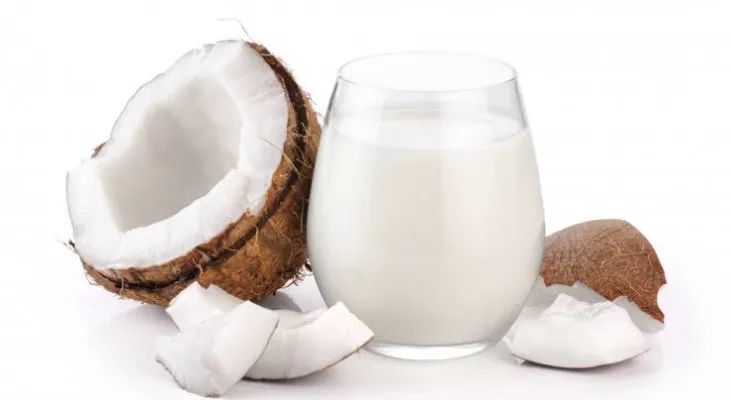
Exploring the Health Benefits of Coconut Milk
Coconut milk, extracted from the mature flesh of coconuts, is emerging as a popular choice for health-conscious individuals due to its myriad health benefits. Unlike traditional dairy milk, coconut milk offers a unique nutritional profile that can contribute positively to overall well-being.
The process of obtaining coconut milk involves shredding the white flesh of mature coconuts, which is then simmered in hot water to extract the creamy liquid. This mixture is then strained, yielding the rich and creamy coconut milk. The thicker layer that forms on top, known as coconut cream, is also widely used in various culinary applications.
Rich in essential nutrients, coconut milk provides several advantages over regular dairy milk:
1. **Blood Sugar Management**: The healthy fats present in coconut milk facilitate slower absorption of sugar into the bloodstream. This mechanism helps in regulating insulin levels, thereby reducing the risk of blood sugar spikes and potentially lowering the risk of developing diabetes. Moreover, the medium-chain triglycerides (MCTs) found in coconut milk serve as a preferred energy source over sugar, making it a suitable option for individuals with diabetes or those seeking to manage their blood sugar levels.
2. **Ulcer Relief**: Research suggests that regular consumption of coconut milk may be effective in alleviating ulcers. Studies have indicated a significant reduction in ulcer size among individuals who incorporate coconut milk into their diets regularly, highlighting its potential as a natural remedy for gastrointestinal ailments.
3. **Digestive Aid**: Optimal hydration is essential for maintaining a healthy digestive system. Coconut milk, enriched with electrolytes and beneficial fats, supports gut health and may offer relief from conditions such as irritable bowel syndrome (IBS). Unlike dairy milk, which can exacerbate lactose intolerance symptoms in some individuals, coconut milk is lactose-free and less likely to cause digestive discomfort.
4. **Heart-Healthy Potential**: Despite its higher fat content, the fats present in coconut milk primarily consist of medium-chain fatty acids (MCFAs), which are considered "healthy" fats. These MCFAs have been associated with maintaining healthy cholesterol levels by potentially increasing high-density lipoprotein (HDL) cholesterol while reducing low-density lipoprotein (LDL) cholesterol levels. Consequently, regular consumption of coconut milk may support cardiovascular health and reduce the risk of heart disease.
It's important to note that while coconut milk offers numerous health benefits, moderation is key. Incorporating coconut milk into a balanced diet can enhance overall well-being, but excessive consumption may lead to unwanted health consequences.
In conclusion, coconut milk stands out as a versatile and nutritious alternative to traditional dairy milk, offering a range of health benefits that promote overall vitality and well-being. By incorporating coconut milk into their dietary regimen, individuals can harness the therapeutic properties of this tropical elixir and embark on a journey towards improved health and wellness.

















